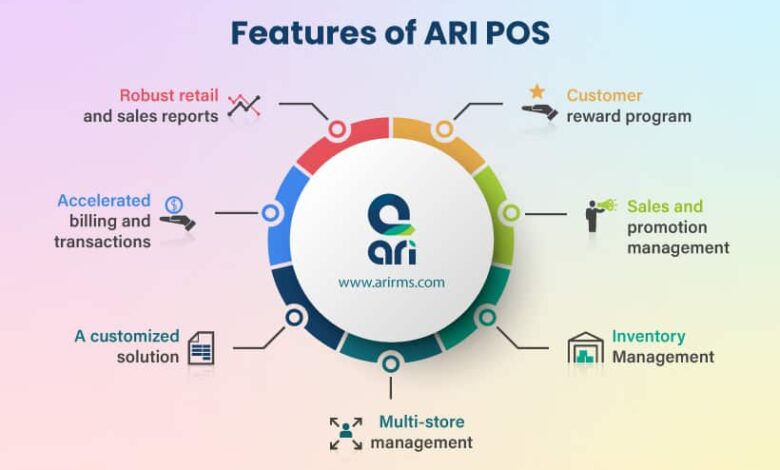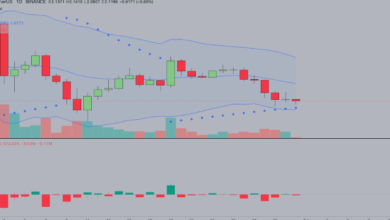From POS to Profit: How Retail Store Management Software Connects the Dots?

Imagine managing an incredibly busy retail shop, managing inventory, dealing with customers’ queries, and making sure that the staff is in good shape. But you’re working with several disconnected tools. It’s possible that your POS system isn’t synchronized with your inventory tracker, and your sales information is spread across a variety of spreadsheets. This means that you aren’t getting the most important insights, as well as your profit margins may be less than they ought to be.
Enter retail store management software, the game-changer.
It connects the dots seamlessly, connecting your business operations from point of sale (POS) to profit. In 2025, retailers cannot afford to depend on a splintering system. With the proper software, you will be able to simplify every aspect of your business’s operations, increasing efficiency, increasing customer satisfaction and, ultimately, boosting your profits.
But how exactly does retail store management software bridge the gaps and drive success? In this blog, we’ll explore the critical ways this software connects your operations, optimizes sales, and increases profitability. Let’s dive in!
How Retail Store Management Software Connects the Dots
1. Real-Time Sales Tracking and Insights
One of the most significant advantages of retail store management software is the capability to gain immediate information on sales performance. Traditional POS systems usually only offer basic sales information that isn’t sufficient to make informed decisions. However, modern software integrates sales data across various channels, helping you monitor:
- What products are selling the most?
- Hours of peak sales
- Sales per employee
The real-time information allows you to alter strategies swiftly. For instance, if a specific item is selling out of the store shelves, you could immediately order more stock, conduct promotions, or ensure that your employees are focused on selling related products. The real-time information can lead to greater profits and improved decision-making.
2. Streamlined Inventory Management
The days of keeping track of stock manually across various software or spreadsheets. The retail store management software integrates your inventory information with your POS system, giving you a one-stop overview of your inventory in real-time. This integration will ensure that each sale or return, as well as stock transfer, is immediately updated across all platforms.
When you automate the management of your inventory, you can reduce the possibility of stockouts or overstocking, two issues that directly affect your profits. If, for instance, you’re experiencing a shortage of an item that is popular, it can create automatic reorder alerts or modify your marketing strategies to sell products that are already overstocked.
Principal Benefit: A seamless inventory system does not just increase efficiency, but also shields the company from loss of sales and costs for stock overages.
3. Efficient Employee Scheduling and Labor Cost Management
Employee scheduling is a logistical nightmare, particularly when you need to manage working hours, sick days, and other special occasions. But retail store management software helps simplify this process by giving you the ability to:
- It is easy to monitor the hours of employees
- The forecast of labor requirements is dependent on traffic information and sales trends
- Change your schedules in real time
By aligning your staff with the demand of your store, you can avoid overstaffing during slower times and understaffing during high-demand times, thereby reducing your cost of labor. The software also offers the employees with transparency, reducing conflicts in scheduling and increasing the satisfaction of your employees.
The main benefit: Improved workforce efficiency can result in cost savings as well as improved customer service.
4. Enhanced Customer Relationship Management (CRM)
Personalization is the key to the satisfaction of customers and their retention within the retail industry. Retail store management software usually has a CRM component that allows you to track customers’ interactions, preferences, and purchase history. Based on this information, it is possible to provide an experience that is more customized, like:
- Promoting targeted offers based on the purchase history of previous customers
- Rewards for loyalty to repeat customers.
- Personalizing emails or messages to keep customers engaged
Utilizing information from customers, you will be able to enhance customer service and increase the number of repeat customers–ultimately boosting profits.
The main benefit: Building strong customer relations leads to loyal customers and more value for life.
5. Comprehensive Reporting and Analytics
With all of your store operations consolidated into one platform, creating precise reports is easy. Software for managing retail stores provides deep analysis that will show you how various areas of your company are operating and how they are performing, such as:
- Trends in sales for a particular product or by location
- Metrics of employee performance
- Profit margins per category
- Customer demographics
With this data with this information, you can make well-informed choices on where to concentrate your efforts – whether that’s in the form of the launch of new products, changing prices, or even shifting your marketing strategies. Analytically-driven decisions are essential for increasing profitability and scaling.
The main benefit: Access to comprehensive information allows retailers to pinpoint areas of improvement and concentrate on the most profitable areas of their business.
Challenges to Watch Out For When Implementing Retail Store Management Software
The benefits of retail store management software are evident, but its implementation comes with problems. There are some obstacles to consider:
1. Data Migration
Moving data from an older system to a brand new system can be lengthy and time-consuming. Making sure that data transfers are smooth is essential to avoid problems and discrepancies during your processes.
2. Employee Training
The best software will not perform if your team isn’t familiar with how to utilize it. A proper training program and continuous support are essential to an effective implementation.
3. Integration Issues
Check that the software is integrated seamlessly with other systems, whether it’s payment gateways, eCommerce platforms, or third-party logistics. Poor integration can hinder efficiency.
Conclusion: Connect the Dots for Greater Profitability
In the current competitive retail environment, retail store management software is more than an instrument. It’s an investment that will drive the profitability. Through integrating your POS inventory, employees’ management and data in a single system, you can simplify your operations as well as improve decision-making and provide better customer service.
As we head into 2025, implementing smart software for managing stores will no longer be an option for the top retailers. It’s a must for maintaining profitability and staying competitive.
If you’re seeking to increase the size of your business and improve your profits, the right retail software for managing your store will make all of the connections to help you achieve your goals.
Read Also: Driving Business Growth with Passion: The Team Behind Can’t Miss Us
FAQs
1. What are the key benefits of retail store management software?
Retail store management software improves efficiency, enhances customer relationships, optimizes inventory management, and provides data-driven insights for smarter decision-making.
2. Can small businesses benefit from retail store management software?
Yes, even small businesses can benefit from improved efficiency, better inventory control, and customer insights, all of which lead to higher profitability.
3. How does retail store management software help with inventory management?
The software provides real-time updates on stock levels, automates reordering processes, and ensures inventory is efficiently allocated across all sales channels.
4. How can retail store management software help personalize customer experiences?
The software allows you to track customer purchase history, preferences, and interactions, enabling you to deliver personalized promotions and loyalty rewards.
5. Is retail store management software suitable for multi-location retailers?
Yes, it’s ideal for multi-location retailers as it centralizes all operations, providing a unified view of sales, inventory, and customer interactions across all locations.



